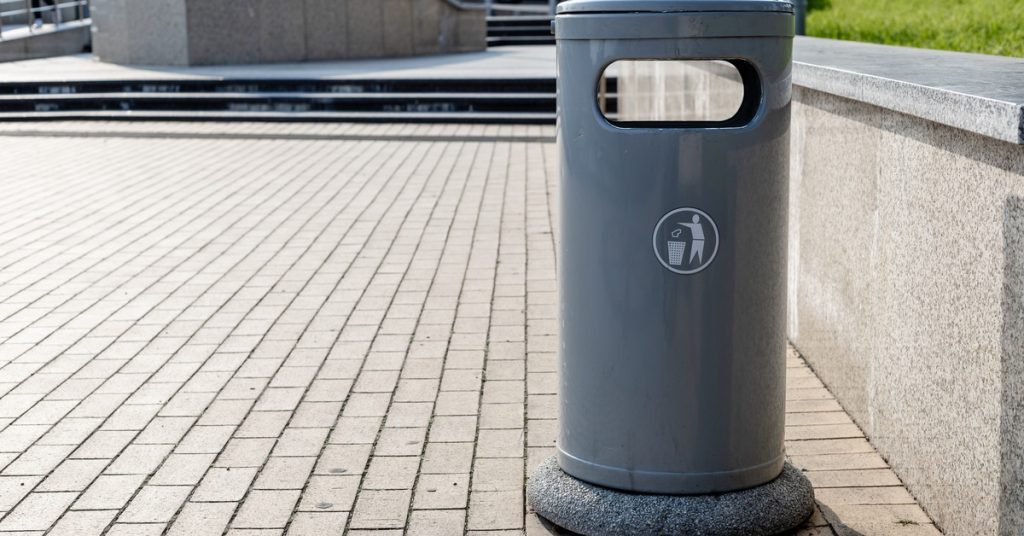From bustling commercial streets to serene parks, keeping an urban environment clean requires strategic planning and consistent execution. If you’re tasked with creating a waste management plan for your city, it can be overwhelming deciding where to begin.
By following a structured approach, you can develop a plan that keeps your city clean and promotes sustainability while meeting the diverse needs of your community. Here’s how to create a waste management plan for your city.
Determine Sources of Waste
Waste sources typically include residential areas, commercial districts, industrial sites, and public spaces. Each source generates different types of waste that require specific approaches to manage effectively.
For example, residential waste might consist of household garbage, recyclables, and food scraps, while industrial waste could be hazardous materials or construction debris. By categorizing and quantifying waste sources, you can identify which areas require the most attention and allocate resources accordingly. Think of it as creating a map of your city’s waste streams before deciding which roads lead to sustainable solutions.
Data collection plays a critical role here. Conduct surveys, analyze waste composition reports, and collaborate with local businesses or organizations to gather accurate information. Once you determine waste sources, you’ll be better equipped to tackle waste management with precision.
Plan Collection Methods
Creating efficient collection systems comes next. Proper collection methods help you remove waste quickly, safely, and with minimal disruption to the city’s daily operations.
Accessible Bins
Strategically placing waste bins in high-traffic areas is key to proper waste disposal. Analyze foot traffic patterns in residential neighborhoods, business districts, and public spaces to determine optimal bin placement. Bins should be clearly labeled for different waste types, such as general trash, recyclables, and organic waste, to promote responsible disposal.
Investing in aesthetically pleasing, durable bins also encourages residents and visitors to use them. Cities have seen remarkable improvements in cleanliness simply by providing convenient options to dispose of waste correctly.
Transportation
Without an efficient transportation system, even the best bin placement won’t lead to effective waste management. Establish routes and schedules for waste collection vehicles to minimize operational costs and environmental impact. Urban centers, with their dense traffic, require specific planning to avoid delays, while rural areas might need additional vehicles to cover larger distances.
Using GPS and fleet management technologies can optimize collection routes, making the process more cost-effective and sustainable. Your city might even consider transitioning to electric or hybrid waste collection vehicles to further align with eco-friendly goals.
Keep Public Spaces Clean
Maintaining clean parks, sidewalks, and streets plays a big role in how residents perceive your city. Clean environments do more than improve aesthetics but also contribute to better citizen health and well-being.
Park Cleaning
Parks are community hubs for recreation, exercise, and relaxation. To keep these spaces inviting, put regular cleaning schedules in place. Tasks should include clearing litter, emptying bins, and maintaining restroom facilities. Additionally, having staff on-site, particularly in larger parks, can address unexpected issues and help educate visitors about proper waste disposal practices.
Community involvement can also enhance park cleanliness. Organizing volunteer cleanup events not only helps maintain the parks but also fosters a sense of ownership among residents.
Street Sweeping

Busy streets and intersections often accumulate debris from businesses and pedestrians. Regularly maintaining these areas through services like commercial street sweeping keeps your city clean and presentable. Street sweepers efficiently remove dirt, trash, and other particles from roadways, reducing buildup that can harm the environment or impact drainage systems.
Here at CPM Sweeping, we specialize in commercial street sweeping throughout Nashville, Tennessee, and surrounding areas. By providing reliable, professional service, we help cities maintain cleaner, safer streets that reflect pride in their communities.
Invest in Avenues for Different Types of Waste
When working to create a waste management plan for your city, you can’t just stop at collection. You must also consider how waste gets processed or reused. Ideally, you want plenty of diverse options here.
Composting
Composting organic waste from food scraps and yard clippings returns nutrients to the soil. Establishing centralized composting facilities makes it easier for residents and businesses to recycle organics rather than sending them to landfills. Cities may even partner with local farms or gardening organizations to reuse composted materials.
Recycling
Recycling is one of the best ways to reduce waste in landfills and conserve natural resources, making it an essential step toward a more sustainable future. Expand recycling programs by providing convenient drop-off locations and curbside collection for items like paper, plastic, and glass. Invest in public education initiatives so residents know what they can and cannot recycle, preventing contamination.
Incineration
For waste that you can’t compost or recycle, incineration provides a way to minimize volume before disposal. Modern incineration plants use advanced technologies to reduce emissions while generating energy as a by-product. While not suitable for every city, incineration can be a valuable addition to areas with limited landfill space.
Landfills
While sustainable practices aim to reduce landfill dependency, they’re still necessary for nonrecyclable or hazardous waste. Landfills should be designed and maintained with environmental safeguards, such as liners and leachate treatment systems, to minimize their impact on local ecosystems.
Offer Sustainability Incentives
Whether you offer reduced waste disposal fees for businesses that implement recycling programs or discounts for residents who compost, sustainability incentives can really make a difference.
Partnering with local organizations or holding competitions can also energize the community. For instance, offering awards to businesses with the lowest waste output or the most innovative recycling ideas fosters healthy competition and drives engagement around waste reduction goals.
Measure and Track Success

A waste management plan can only succeed if its effectiveness is measured and adapted when necessary. Develop systems to track metrics such as waste diversion rates, collection efficiency, and public participation levels. This data identifies problem areas, celebrates successes, and continuously improves the waste management plan.
Regularly share updates with the community to keep them informed and motivated. Transparency builds trust, and celebrating milestones encourages ongoing involvement from residents and businesses alike.

